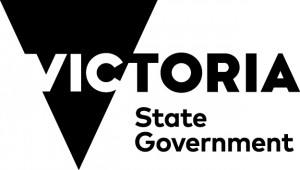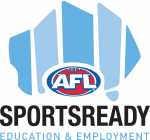Words: Cat Woods
Stephanie Beltrame, General Manager of Cricket Australia, is the powerhouse behind major media negotiations and deals regarding cricket. Whether you know her name or not, you have been the beneficiary of her work if you’ve switched on the TV, opened the newspapers, or tuned in to listen to the cricket results over the past five years.
Beltrame was selected by Cricket Australia boss James Sutherland to negotiate the blockbuster deal in 2013 that saw Ten up the ante in the free-to-air stakes and consequently result in Nine spending $450 million to outshine Ten’s bid for international cricket. Ten bought the Big Bash League rights for a cool $100 million.
By the time she was handpicked to wheel and deal with major media players, Beltrame had already proven her mettle in Cricket Australia’s public affairs department, been the media manager for Australia’s women’s team (the Southern Stars), and managed the media partnerships for CA. In her spare time, she’d completed an MBA and played cricket with passion, but as she accedes, not fantastic on-field glory.
Enjoy this Question and Answer with this inspiring Vicsports Board Member.
Was cricket always a passion for you or was it sport in general?
I must admit cricket wasn’t my sporting passion when I started work at CA – but it probably is now!
I’ve always been passionate about sport, both from a playing and viewing perspective and what I have learnt is that the more you are involved in a sport the more you understand it and the more passionate you become – that has been my experience. I tend to have a stronger passion for the sports I have grown up with, but as an industry I am deeply passionate about what sport offers to the community and the way it can positively influences in so many ways – socially, physically, emotionally and culturally.
Did you have an interest in the media industry prior to working for CA?
Subconsciously, yes. But it was only through my working career that I developed a keener and more focussed interest in what I do now.
The media industry is so diverse that it isn’t possible as a young person to necessarily understand all the elements and how they intersect. Just like the sports industry, the media world is diverse, fast paced and influential in the impact it has and the way it stirs genuine passion amongst those who work and consume it.
How would you describe the major changes you’ve noticed in the media and sporting industries over the past 10 years?
There have been so many major changes and major change that occurs quite regularly, which makes both industries on their own and in combination, so dynamic.
Have you struggled at all with the development of online and instantaneous means of accessing results, footage, news and data?
Technology, both in a disruptive way and also in a complementary way, has been at the fore of the major changes to both industries. At times I have seen great resistance to change, mostly driven by fear of the unknown and the forcing of changes to business models to adapt. But I think the world for fans and participants now, by way of technological developments, has resulted in major benefits and improvements in the ways they can access and consume sport.
What’s your process of preparation for meetings and major negotiations on behalf of CA?
Preparation is absolutely key whether for an everyday meeting or a major negotiation - if you don’t know what you want to achieve, the meeting or negotiation is pointless.
In a major negotiation, you must know everything you can and more about the subject matter, what are your objectives and what the party on the other side of the table is seeking. Ultimately that party is likely going to be your partner and help you with your objectives, so you have to understand the framework and what needs to be achieved so you can create the wins that make the transaction successful.
How does working in local clubs benefit those who want to pursue senior roles in state or nation-wide sporting organisations?
Having an inherent understanding of how sports work from the ground up is extremely valuable. I think this applies to any business – that knowing how things work on the shop floor or on the production line or at a local club gives you the knowledge and experience to make informed decisions.
James Sutherland has previously said, “ it's a great example for anyone, not just in sport but anywhere, that if you work hard enough, have the talent and go about it the right way, you can go anywhere in an organisation.”
Could you describe
- Working hard enough: for me working hard isn’t a choice, it’s just what I want to do because I find it rewarding and I like to challenge myself.
- Having the talent: I would say it’s about having a positive attitude more so than having any talent. If you have the right attitude you can learn or be taught anything and improve. Having talent and a bad attitude is not a great recipe.
- Going about using talent the right way: attitude is more valuable than talent
If someone said tomorrow, you’ve got the day off, what would you do with your time?
I would spend the day with my husband Joseph and my family and friends. The day would definitely include some sport!
You may also be interested in...
Vicsport Open House: Co-Working Space #3

The third edition of the Vicsport 'Open House' provided another great opportunity for anyone working in the sport and active recreation industry to spend the day working alongside colleagues, collaborating, sharing ideas and meeting new people in a relaxed environment
A unique look inside Melbourne City FC facilities

VPN Event Melbourne City FC Tour: 5 August 2015 An exclusive group of Vicsport Professional Network members were lucky enough to be given an all-access tour of Melbourne City Football Club's state of the art training facility, the City Football Academy, Melbourne
School Sport Victoria - Dressed to look the part

School Sport Victoria (SSV) is the peak body for School Sport in Victoria


























